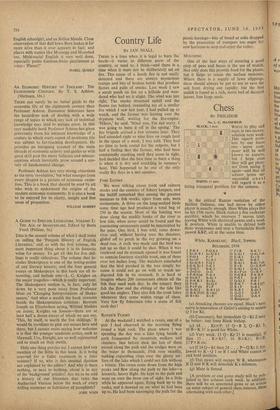A GUIDE TO ENGLISH LITERATURE. VOLUME 2: THE AGE OF
SHAKESPEARE. Edited by Boris Ford. (Pelican, 5s.) THIS is the second volume of what I shall insist on calling the 'Penguin History of English Literature,' and, as with the first volume, the most important thing about it is its fantastic value for money. To get all this for five shil- lings is really ridiculous. The volume that in- cludes Shakespeare is one of the testing-points of any literary history; and the four general essays on Shakespeare in this book are all in- teresting, and include one—L. C. Knights on the major tragedies—which is really important. The Shakespeare section is, in fact, only let
down by a very poor essay from Professor Muir on 'Changing Interpretations of Shake- speare.' And what a wealth the book contains beside the Shakespearean criticism: Bertram Joseph on Elizabethan acting, Wilfred Mellers on music, Knights on Jonson—there are at least half a dozen essays of which we can say, 'This, by itself, is worth the five shillings.' It would be invidious to pick out names here and there, but I cannot resist saying how welcome it is that the younger academic critics, such as Maxwell, Urc, Enright, are so well represented and so much on their mettle.
Only one thing puzzles me. I cannot find any mention of the Bible in this book. Is it being reserved for a fuller treatment in a later volume? If so, why is this unusual decision not explained by the editor? And why is there nothing, or next to nothing, about it in any of the 'background' articles? Arc we to be sold a history of our literature that rates the Authorised Version below the work of every trifling sonneteer or fabricator of pamphlets?










































 Previous page
Previous page